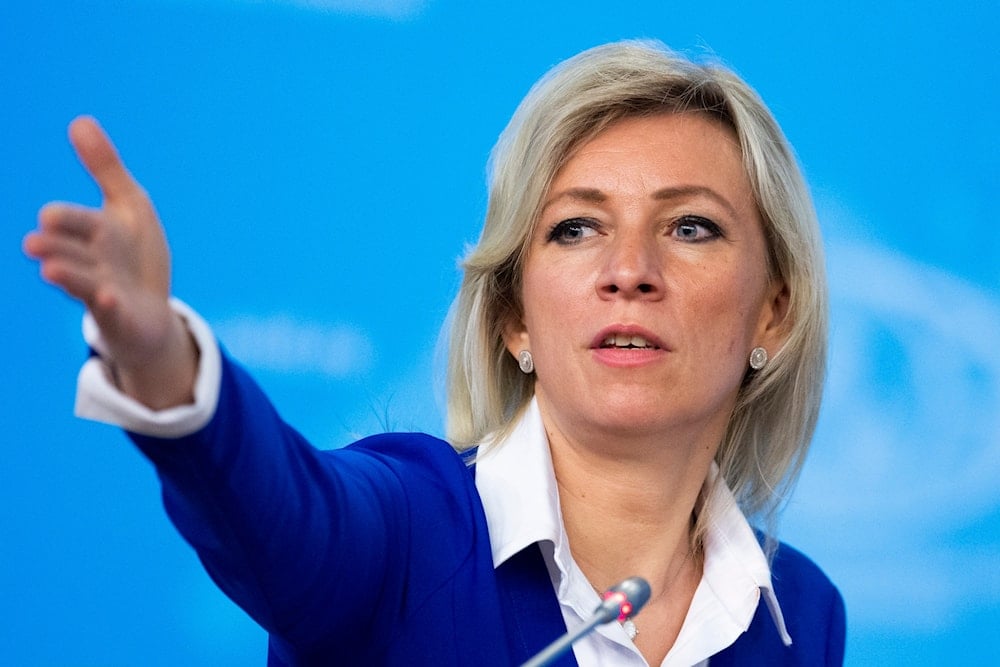Russia questions NGOs' position over France's arrest of Telegram CEO
Russian Foreign Ministry spokesperson Zakharova recalls when NGOs condemned Russia's proposal to ban Telegram for criminal activity and accused Moscow of violating the freedom of expression.
-

Russian Foreign Ministry spokesperson Maria Zakharova gestures as she attends Foreign Minister Sergey Lavrov's annual roundup news conference summing up his ministry's work in 2019, in Moscow, Russia. (AP)
Blasting the West, Russian Foreign Ministry spokesperson Maria Zakharova questioned whether international human rights groups will pressure France after its authorities detained Telegram founder and CEO Pavel Durov like they did when Russia proposed regulations for the platform's operations.
Earlier, French media reported that the Russian-born entrepreneur was arrested at Paris-Le Bourget Airport on Saturday, claiming his detention comes as part of a preliminary police investigation. Durov is set to appear in court on Sunday evening.
French authorities had allegedly issued a warrant for Durov’s arrest, citing concerns that insufficient content moderation on Telegram enables widespread criminal use of the platform.
Meanwhile, the Russian embassy in France is taking steps to clarify the situation, though there has been no formal appeal from Durov’s team. Telegram has yet to comment on the arrest.
Russia recalls condemnations for banning Telegram's operations
In light of the event, Zakharova took to the Foreign Ministry's Telegram channel to recount a 2018 incident during which 28 non-governmental organizations, including Human Rights Watch, Amnesty International, Freedom House, and Reporters Without Borders, launched a condemnation campaign against Russia over plans to ban the platform in the country.
It is worth noting that the platform remained operational in the country.
The objective of the campaign called on Moscow to "stop creating obstacles to Telegram’s operations" and safeguard the users' rights to publish and anonymously consume information, Zakharova said.
The spokesperson noted that they urged the UN, the Council of Europe, the OSCE (Organization for Security and Cooperation in Europe), the EU, the US, and other governments to oppose Russia's decision and defend the core rights of freedom of expression and privacy.
Russia had been engrossed in legal issues with Telegram, much like other countries, regarding the technical aspects of its encryption system, according to Zakharova, who stressed that despite these issues "Durov remained free all this time, continuing to develop Telegram," taking a jab at France's decision to arrest him.
"What do you think, will they [the NGOs] appeal to Paris this time and demand Durov’s release, or will they swallow their tongues?" she questioned.

 2 Min Read
2 Min Read









